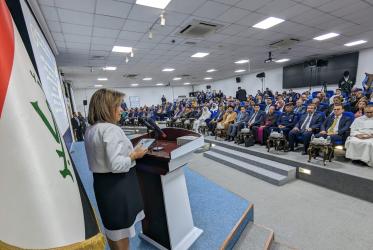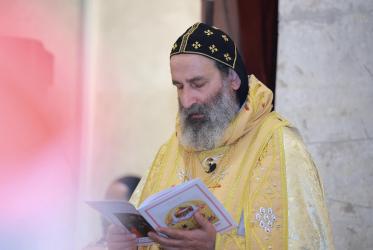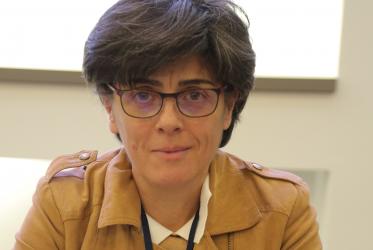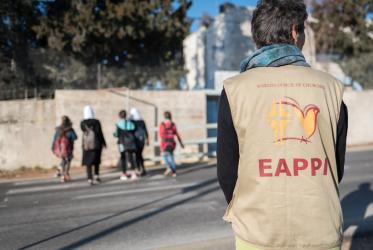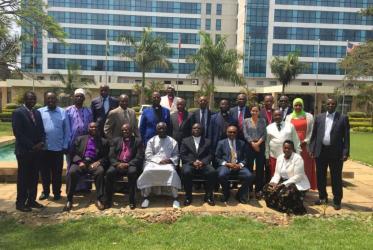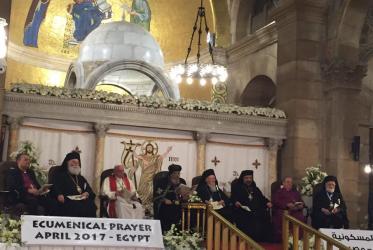Displaying 1 - 20 of 30
Hope prevails in times of crisis in Lebanon
14 September 2020
South Sudan Church leaders welcome new cabinet
15 March 2020
Dr Saïd Ailabouni: God is on the side of rejected, oppressed, occupied
12 September 2019
Walking together against hatred and violence
26 February 2018
Historic ecumenical prayer in Egypt for peace and unity
30 April 2017
WCC gravely concerned over Israel’s travel ban
09 March 2017
Grand Imam calls for collaboration against violence and poverty
06 October 2016


